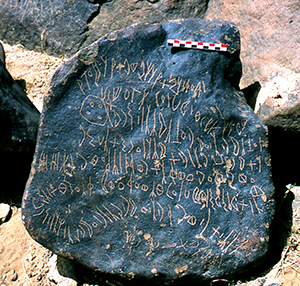 What: Oxford meet of the Yorkshire Sound Women Network
What: Oxford meet of the Yorkshire Sound Women Network
Who: Amy V Beeston, Liz Dobson, Pip Willcox
When: 18:00—20:00, Thursday 11 May 2017
Where: The Jam Factory (map)
Access: open to women of all ages
Admission: free
Booking: no booking required: just turn up!
We are delighted to welcome two of the leading lights of the Yorkshire Sound Women Network (YSWN), Liz Dobson and Amy Beeston, to Oxford where we will be co-hosting a meet in a cafe—YSWN on tour!
YSWN’s glorious mission is to inspire and enable more women and girls to explore sound and music technology. This first meeting in Oxford marks the start of our own sister network, supported by the Fusing Semantic and Audio Technologies project.
Women and girls of all ages are invited to come together to meet new people and talk about sound and music technology in an informal setting, tea and cake provided!
There is no pressure to share work with the group, but if there is something you would like to bring along for people to look at/listen to you are more than welcome.
If you would like to find out more about YSWN, you can join their mailing list through their Facebook page. There is more information about the network in Sheffield through the Sheffield YSWN Facebook group or Sheffield YSWN Google group. You can also read more about the series of workshops which took place in Sheffield as part of Catalyst:Festival of Creativity.
For more information about this event, please contact pip.willcox@bodleian.ox.ac.uk. For any queries about YSWN’s events please contact yswnsheffield@gmail.com.
We look forward to seeing you on 11 May!
Dr Amy V Beeston
I am a postdoctoral researcher at the University of Sheffield, working in the ‘Speech and Hearing’ and ‘Music Mind Machine’ research groups. I develop tools to extract meaningful data from audio signals, and am particularly interested in using principles of human audition to improve the performance of machine listeners in everyday environments.
Dr Liz Dobson
I am a senior lecturer in music technology at the University of Huddersfield with an OU PhD in education and social psychology. My academic work examines relationships between community, learning and creative practice in music technology, leading me to create informal communities for knowledge sharing.Â
Pip Willcox
I am the Head of the Centre for Digital Scholarship at the Bodleian Libraries, and a Senior Researcher at the University of Oxford e-Research Centre where I work on the EPSRC project, Fusing Semantic and Audio Technologies for Intelligent Music Production and Consumption (EP/L019981/1). I co-direct the Digital Humanities at Oxford Summer School and convene its introductory workshop strand. With a background in textual editing and book history, my current work investigates narrative and the intersection between the material and the digital, exploring the experimental humanities.



 What: Digitization for Research at the Bodleian: Creating Tools for Active Scholarship
What: Digitization for Research at the Bodleian: Creating Tools for Active Scholarship
 What: A rock and a hard place: creating the Online Corpus of Inscriptions of Ancient North Arabia
What: A rock and a hard place: creating the Online Corpus of Inscriptions of Ancient North Arabia
 This talk is part of the
This talk is part of the 

